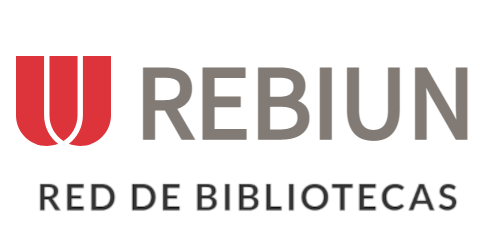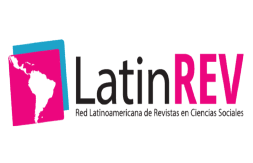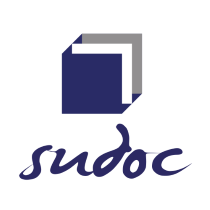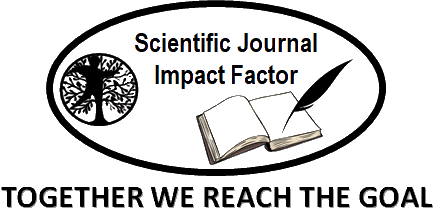Self-Assessment to Improve English Speaking Skills: an action research with Elementary School Ecuadorian students
DOI:
https://doi.org/10.69639/arandu.v11i2.282Palabras clave:
self-assessment, speaking skills, autonomyResumen
This study aimed to determine the impact of self-assessment on speaking skills among A2 movers’ students. The data analysis revealed that its use has a favorable effect on students' speech skills and showed that they could use the content in a real context. They incorporated reflection to be aware of their learning, understood their mistakes, and tried to improve their level of preparation for better results. At that time, they took responsibility for all the steps planned in innovation because they tested their effort and progress in each activity. In addition, the improvement demonstrated in the results of the evaluation carried out by the teacher with the rubric in the posttest was significant in the final part of the unit. The self-assessment helped students take the necessary corrective measures to be more prepared to do speech exercises. According to the students' perspectives, self-evaluation helped them improve their skills because they were able to identify areas of speech that needed to be improved and gradually, could reinforce their discourse to give better descriptions of places and people.
Descargas
Citas
Alek, A., Marzuki, A. G., Farkhan, M., & Deni, R. (2020). Self-assessment in exploring EFL students’ speaking skill. AL-TA LIM, 27(2), 208–214.
https://doi.org/http://dx.doi.org/10.15548/jt.v27i2.613
Al Hosni, S. (2014). Speaking difficulties encountered by young EFL learners. International Journal on Studies in English Language and Literature (IJSELL), 2(6), 22-30.https://www.researchgate.net/profile/Samira-Al-Hosni/publication/270340628_Speaking_Difficulties_Encountered_by_Young_EFL_Learners/links/54a843470cf256bf8bb7e177/Speaking-Difficulties-Encountered-by-Young-EFL-Learners.pdf
Altricher, H., Feldman, A., Posch, P., & Somekh, B. (2005). Teachers investigate their work: An introduction to action research across the professions. Routledge. https://doi.org/10.4324/9780203978979
Al-Zedjali, K. (2009). Students’ beliefs about learning to speak English.Researching English Language and Teacher Development in Oman,14, 122–131. ISBN 978-9948-15-243-9 https://www.researchgate.net/profile/Samira-Al-Hosni/publication/270340628_Speaking_Difficulties_Encountered_by_Young_EFL_Learners/links/54a843470cf256bf8bb7e177/Speaking-Difficulties-Encountered-by-Young-EFL-Learners.pdf
Anh, K. H., Dong, M. H., & Trang, N. H. (2022). An investigation into English-majored students' self-Assessment of their speaking performance. International Journal of Instruction, 15(3), 191-208. https://doi.org/10.29333/iji.2022.15311a
Ariafar, M., & Fatemipour, H. R. (2013). The effect of self-assessment on Iranian EFL learners’ speaking skill. International Journal of Applied Linguistics and English Literature, 2(4), 7– 13. https://doi.org/10.7575/aiac.ijalel.v.2n.4p.7
Arifin, S. R. M. (2018). Ethical considerations in qualitative study. International Journal of Care Scholars, 1(2), 30-33. https://doi.org/10.31436/ijcs.v1i2.82
Asdar, A. (2017). Students’ Self -Assessment on Their Spoken Interaction Using Cefr. The 1st Education and Language International Conference Proceedings Center for International Language Development of Unissula, 148–161. STUDENTS’ SELF-ASSESSMENT ON THEIR SPOKEN INTERACTION USING CEFR | Asdar | Proceedings Education and Language International Conference (unissula.ac.id)
Awwalien, H. R. (2019). Self-, Peer-, and Teacher-Assessment in Speaking. LangEdu Journal, 9(1), 1–14. Self-, Peer-, and Teacher-Assessment in Speaking | Awwalien | Language-Edu (unisma.ac.id)
Boud, D., & Falchikov, N. (1989). Quantitative studies of student self-assessment in higher education: A critical analysis of findings. Higher Education, 18(5), 529–549. https://doi.org/10.1007/BF00138746
Brown, H.D. (1994). Teaching by principles: An interactive Approach to Language Pedagogy. Englewood Cliffs, NJ: Prentice Hall Renents. Teaching by Principles: An Interactive Approach to Language Pedagogy (cuhk.edu.hk)
Brown, J. D., & Hudson, T. (1998). The alternatives in language assessment. TESOL Quarterly, 32(4), 653-675. https://doi:10.2307/3587999
Burnard, P., Gill, P., Stewart, K., Treasure, E., & Chadwick, B. (2008). Analyzing and presenting qualitative data. British dental journal, 204(8), 429-432.
https://doi.org/10.1038/sj.bdj.2008.292
Bygate, M. (1987). Speaking. Oxford university press. Speaking - Martin Bygate - Google Libros
DiCiccoBloom, B., & Crabtree, B. F. (2006). The qualitative research interviews. Medical education, 40(4), 314-321. https://doi.org/10.1111/j.1365-2929.2006.02418.x
Ferrance, E. (2000). Action Research. Rhode Island, RI: Brown University: Educational Alliance, 34(1). https://files.eric.ed.gov/fulltext/ED494221.pdf
Goodrich, H. (1996). Student self-assessment: At the intersection of metacognition and authentic assessment. Unpublished doctoral dissertation, Harvard University, Cambridge, MA. Promoting Learning and Achievement Through Self-Assessment (tandfonline.com)
Harris, L. R., & Brown, G. T. (2013). Opportunities and obstacles to consider when using peer-and self-assessment to improve student learning: Case studies into teachers’ implementation. Teaching and Teacher Education, 36, 101-111. https://doi.org/10.1016/j.tate.2013.07.008
Harris, M. (1997). Self-assessment of language learning in formal settings. ELT Journal, 51(1), 12-20. https://doi.org/10.1093/elt/51.1.12
Heilenman, L. (1990). Self-assessment of second language ability: The role of response effects. Language Testing, 7(2), 174-201. https://doi.org/10.1177/02655322900070020
Imani, S. (2021). The Comparative Effect of Self-Assessment and Peer Assessment on Reflective and Impulsive EFL Learners’ Speaking Skill. Journal of Foreign Language Teaching and Translation Studies, 6(4), 99-120. 10.22034/EFL.2022.325985.1139
Kumar, T., Soozandehfar, S.M.A., Hashemifardnia, A. & Mombeini, R. (2023). Self vs. peer assessment activities in EFL-speaking classes: impacts on students’ self-regulated learning, critical thinking, and problem-solving skills. Language Testing Asia, 13(36). https://doi.org/10.1186/s40468-023-00251-3
Kürüm, E. (2016). Teaching speaking skills. Annals of the University of Oradea: Economic Science, 25(1), 264-273. HowtoTeachSpeaking-with-cover-page-v2.pdf (d1wqtxts1xzle7.cloudfront.net)
Masruria, W. W. (2021). Exploring self-assessment of speaking skill by EFLhigh school students. Linguistic, English Education and Art (LEEA) Journal, 4(2), 387-400.
https://doi.org/10.31539/leea.v4i2.2285
Mohamed, M. H., & Razali, A. B. (2019). Using self-assessment as a tool for English language learning. English Language Teaching, 12(11), 64-73
https://doi.org/10.5539/elt.v12n11p64
Moncayo, M., & Ramirez-Avila, M.(2022). Self-Assessment to improve speaking skills: a brief action research. Sapienza, 3(4), 120-131. https://doi.org/10.51798/sijis.v3i6.492
Muñoz, W., & Contreras, O. R. (2018). Transactional communication strategies to influence pre-service teachers’ speaking skill. Gist: Education and Learning Research Journal, 16, 33-55. https://doi.org/10.26817/16925777.424
Nikolovska, A., (2015). Self-assessment in the young learner classroom: Teacher perspectives. Paper presented in Fourth International Conference of Teaching English to Young Learners: Assessment and Learning, Jagodina. article_13090_8ccc5c79860f2e41b4365d9e2909cf17.pdf (scu.ac.ir)
Pakula, H. M. (2019). Teaching speaking. Apples-Journal of Applied Language Studies, 13(1), 95-111. https://doi.org/10.17011/apples/urn.201903011691
Pierce, L.V. (1999). Preparing Independent Learners: The role of selfassessment. Revista Canaria de Estudios Ingleses. 38, 127-137. http://riull.ull.es/xmlui/handle/915/30481
Pop, C., & Khampirat, B. (2019). Self-assessment instrument to measure the competencies of Namibian graduates: Testing of validity and reliability. Studies in Educational Evaluation, 60, 130-139. https://doi.org/10.1016/j.stueduc.2018.12.004
Rugel Jara, D. N. (2020). The impact of the affective filter on the oral competence of efl students (Bachelor's thesis, Universidad de Guayaquil. Facultad de Filosofía, Letras y Ciencias de la Educación). https://repositorio.ug.edu.ec/items/dde64659-a426-40cf-9401-21fad2f45c2c/full
Santos, J., Veiga de Souza, V., & Vélez-Ruiz, M. (2020). Evaluación de las emociones que impiden que estudiantes ecuatorianos hablan inglés en clase: Caso Provincia de Los Ríos. Maskana, 11(1), 5–14. https://doi.org/10.18537/mskn.11.01.01
Santos, J. & Ramírez-Ávila, M. (2022), Improving speaking fluency through 4/3/2 technique and self-assessment. Teaching English as a Second Language Electronic Journal (TESL-EJ), 26(2). https://doi.org/10.55593/ej.26102a1
Weiss, R. S. (1995). Learning from strangers: The art and method of qualitative interview studies. Simon and Schuster. Learning From Strangers: The Art and Method of Qualitative Interview Studies - Robert S. Weiss - Google Libros
Zhang, S. (2009). The role of input, interaction, and output in the development of oral fluency. English Language Teaching,2(4),91–100 eric.ed.gov
Zuber-Skerritt, O. (Ed.). (2021). Action research for change and development. Routledge. Action Research for Change and Development-Google Libros
Publicado
Cómo citar
Número
Sección
Licencia
Derechos de autor 2024 Nathaly Dayanara Calero-Vinueza, Jardel Coutinho Dos Santos, Gabriela Galeas Arboleda, Ana Maria Cruz Quijije

Esta obra está bajo una licencia internacional Creative Commons Atribución 4.0.





















